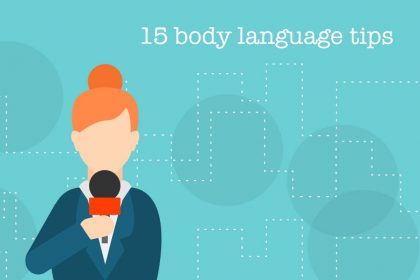Is your modesty holding your business back?
Is your natural modesty holding you back? And if so, how can you get past it to successfully and confidently grow your business?
As a rule, women are terrible at taking compliments and shouting about their amazing skills and achievements. In fact, our most popular article ever – Three words you should never use to describe your work or business – explains how we’re much more likely to downplay and minimise our success with overly-modest descriptions and explanations.
Now, Melissa Talago from Campfire Communications explains why it’s important for us to let go of our modesty – and how we can tell our story (without boasting) to attract more customers.
Are you too modest?
Go on admit it, how often when someone gives you a compliment like ‘Your hair looks nice’, do you reply with, ‘Really? It’s such a mess this morning’? We seem to go out of our way to sidestep compliments to avoid appearing boastful or proud.
This aversion to being pleased with ourselves is reflected in business. When I gave 50 women who run small businesses a list of statements and asked them which they identified with, 42% agreed with this one:
‘I know I’m good at what I do but I am embarrassed to say it as it comes across as boastful.’
It’ll come as no suprise that 44% also agreed with the statement ‘I wish I had more customers.’ Could the two go hand in hand….?
What we can learn from female entrepreneurs in the US
If you look at many US female entrepreneurs who appear to run really successful businesses, they are not shy about their abilities. They exude confidence, believe in themselves. It’s not boastful, they just clearly state what they are good at and they aren’t ashamed to tell their story.
And that is the key. They tell their story.
In the same poll, by far and away the highest scoring statement with 63% agreeing with it, was:
‘I want my business to reflect me as an individual.’
Yet so few British businesses really do this. We create a business story that we think our customers want to hear. We put on a business persona so that we don’t really have to reveal who we are for fear we’re not good enough or that we appear boastful.
But for solopreneurs, particularly if you are in a service-led business, YOU are the business. You are who clients buy into. What makes you up as a person is a pivotal part of the service you deliver. If you are too shy or embarrassed to say why you are good, people will look elsewhere.
How to tell your story to attract more customers
So how can you take a leaf out of other entrepreneurs’ books and learn how to tell your own story to attract more customers?
Here’s a nine-step exercise to help you do just that:
- Describe yourself – write a rough description of yourself, your key attributes. If you aren’t sure, ask your friends or family for words they would use to describe you. Friendly? Funny? Practical? Thoughtful? Empathetic? Chatty? Etc.
- Ask your friends – ask those same friends (or your existing customers if they are fans) what they think you are really good at. You may be surprised at their answers.
- Write your story – start writing your story (bullet points are okay, it doesn’t need to be a masterpiece!). How did you end up where you are today? What were the key challenges you faced? How did you overcome them? What motivated you to do it? Go back as far as you need to. People don’t necessarily want to hear your entire life history, but if there are relevant things that have happened in your life that have made you uniquely you, then tell them.
- Describe your customers – write a description of who your ideal customers are.
- List their problems – write a list of the problems they typically face.
- Work out how you help – write down how you can help them solve those problems.
- Put it together – now marry the ‘you’ and ‘them’ up. Show how your own background, motivations, strengths and key attributes can help your customers with their challenges. DO NOT BE SHY TO TELL THEM WHAT YOU’RE GOOD AT! This isn’t a narcissistic exercise – after all customers want to know how you can help them. But you will create your differentiator, your USP, by weaving your story into the way you help customers. It will also help reinforce what your brand stands for and will give your customers a good idea of what to expect.
- Be yourself – don’t try to be something you’re not. If you say that you’re really chatty and friendly, when actually you’re quite quiet and reflective, it won’t work. If you are quiet and reflective, say that. But paint it in a positive light : ‘You talk, I listen, reflecting on what you say…’
- Tell the world! – now go out and tell your story. Ensure that your web copy, social media, newsletters and any other marketing materials reflect this story, your personality and what your brand is really all about.
You’re not just helping yourself…
If you’re still not feeling convinced that you have a right to tell the world why you are awesome, remember this – by running your own business, you are helping to support the economy.
You are one of the 3.6 million sole trader businesses in this country brave enough to go it alone, instead of relying on big business to employ you. You deserve to be heard. So believe in yourself, get out there and tell your story!
Campfire Communications has a range of cost-effective packages to help solopreneurs and SMBs get noticed (particularly those in the parenting and travel sectors) ranging in price from £50 to £599. These include an online PR course, message and USP development, copywriting bundles and hourly ad hoc help, for when you need to speak to a marketing expert without the commitment of an ongoing retainer.
For more information on Campfire Communications, visit their website.










